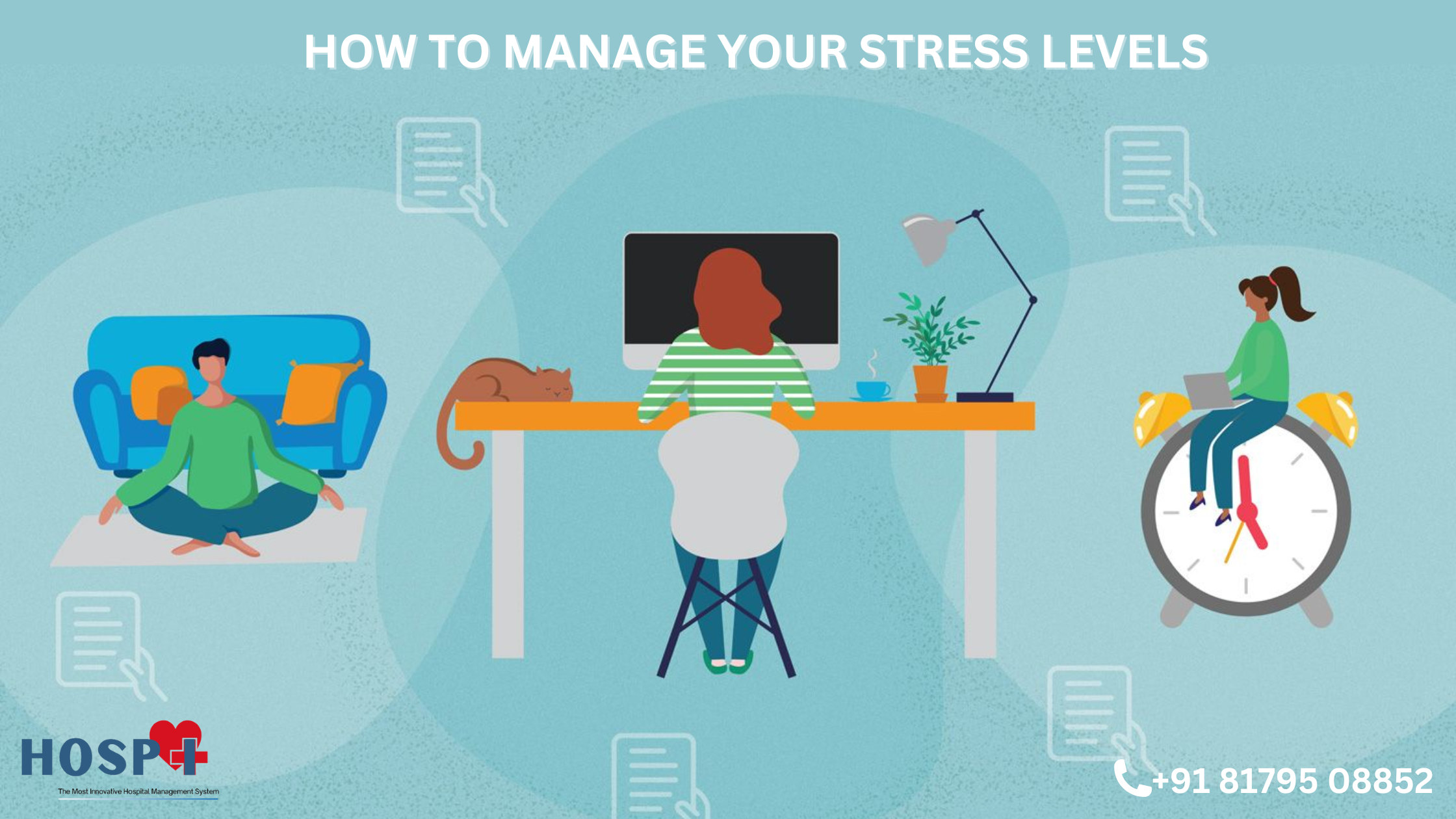Stress is a normal part of life. Everyone experiences stress from time to time. Your physical and emotional health may be negatively impacted by persistent stress, though. Here are some tips:
1. Identify your stressors. The first step to managing stress is to identify the things that are causing you stress. You may begin to create coping mechanisms once you are aware of your pressures.
2. Set limits. It’s important to learn how to say no to things that you don’t have time for or that will add to your stress levels. It’s crucial to have the ability to assign work to others.
3. Take care of yourself. Ensure that you are getting adequate sleep, eating a good diet, and exercising frequently. These activities can help to reduce stress and improve your overall health.
4. Relaxation techniques. There are many relaxation techniques that can help to reduce stress. Deep breathing, meditation, and yoga are a few of the most well-liked methods.
5. Talk to someone. Sometimes, talking to someone about your stress can be helpful. A friend, relative, therapist, or counsellor are good people to chat to.
6. Seek professional help. If you’re struggling to manage your stress on your own, you may need to seek professional help. A therapist can help you to develop coping mechanisms and strategies for managing your stress.
Identifying your stressors
The first step to managing stress is to identify the things that are causing you stress. You may begin to create coping mechanisms once you are aware of your pressures.
Some common stressors include:
- Work
- Relationships
- Money
- Health
- Family
- School
- Personal responsibilities
Once you have identified your stressors, you can start to think about how you can reduce or eliminate them. For example, if you are stressed about work, you could try to delegate tasks, set boundaries, or take a break from work.
Setting limits
It’s important to learn how to say no to things that you don’t have time for or that will add to your stress levels. Learning how to assign duties to others is also crucial.
If you are constantly saying yes to requests, you will eventually become overwhelmed and stressed. It’s important to learn how to say no in a way that is respectful and assertive.
You should also learn how to delegate tasks to others. This can help to free up your time so that you can focus on the things that are most important to you.
Taking care of yourself
The necessity of attending to your bodily and mental well-being cannot be overstated. This include consuming wholesome meals, obtaining sufficient rest, and engaging in regular exercise.
You can combat stress by eating nutritious meals since they will provide you the energy you need. Sleeping sufficiently will make you feel rested and awake. Additionally, regular exercise might help you feel happier and less stressed.
Relaxation techniques
There are many relaxation techniques that can help to reduce stress. Some popular techniques include:
- Deep breathing: This is a simple but effective technique that can help to calm the body and mind. Close your eyes and choose a comfortable posture to sit or lie down to practice deep breathing. Take a slow, deep breath in through your nose, and hold it for a few seconds. Then, exhale slowly through your mouth. Repeat this process for several minutes.
- Meditation: Meditation is a more advanced relaxation technique that can help to reduce stress and improve focus. There are many various kinds of meditation, but the most call for finding a comfortable seat and paying attention to your breath.
- Yoga: Yoga is a type of physical activity that incorporates breathing techniques, meditation, and physical postures. Yoga may ease tension, increase flexibility, and build physical strength.
Talking to someone
Sometimes, talking to someone about your stress can be helpful. You can discuss your feelings with a friend, family member, therapist, or counsellor.
Talking to someone can help you to feel less alone and to get support. It can also help you to process your thoughts and feelings about your stress.
Seek professional help
If you’re struggling to manage your stress on your own, you may need to seek professional help. A therapist can help you to develop coping mechanisms and strategies for managing your stress.
A therapist can also help you to understand the root of your stress and to develop ways to address it.
Conclusion
Maintaining your physical and emotional health requires that you learn how to manage stress. You may lower your stress levels, enhance your health, and lead a more satisfying life by implementing the advice in this article.
Additional tips
- Avoid caffeine and alcohol. Caffeine and alcohol can both worsen stress. To mitigate stress, its advisable to steer clear of these substances.
- Get enough sleep. Lack of sleep increases your likelihood of feeling anxious. Sleep for 7-8 hours every night.
- Practice mindfulness. To be present in the present moment without making any judgments is what encompasses the practice of mindfulness. You may practice mindfulness in many different ways, such as via yoga, meditation, or even just focusing on your breath for a few minutes each day.
- Connect with others. Stress reduction may be greatly aided by social support. Spend time with your loved ones and friends, or sign up for a stress-relief support group.
- Do something you enjoy. It’s crucial to do something you like when you’re stressed out. This might be anything that makes you joyful, like reading, listening to music, being outside.
Although managing stress might be difficult, it’s crucial to keep in mind that you’re not alone. You may take a variety of actions to lessen stress and enhance your health. You may learn to control your stress and have a more satisfying life with practice.
FAQs
1. What is stress, and why is it important to manage it?
2. What are the common signs and symptoms of stress?
Feeling overwhelmed or anxious
Irritability and mood swings
Fatigue and sleep disturbances
Muscle tension and headaches
Digestive issues
Difficulty concentrating
Changes in appetite
3. How can I identify the sources of stress in my life?
4. What are some healthy coping mechanisms for managing stress?
Regular exercise and physical activity
Practicing mindfulness and meditation
Deep breathing exercises
Maintaining a balanced diet
Engaging in hobbies or activities you enjoy
Seeking social support from friends and family
Time management and prioritization
5. How can I incorporate exercise into my daily routine to reduce stress?
6. What is mindfulness, and how does it help manage stress?
7. Are there any specific foods that can help reduce stress?
8. How can I create a stress-free environment at home and work?
Declutter and organize your living and workspaces.
Set realistic goals and expectations.
Communicate openly with colleagues and loved ones about your stressors.
Establish boundaries to maintain a work-life balance.
Incorporate relaxation techniques during breaks.


